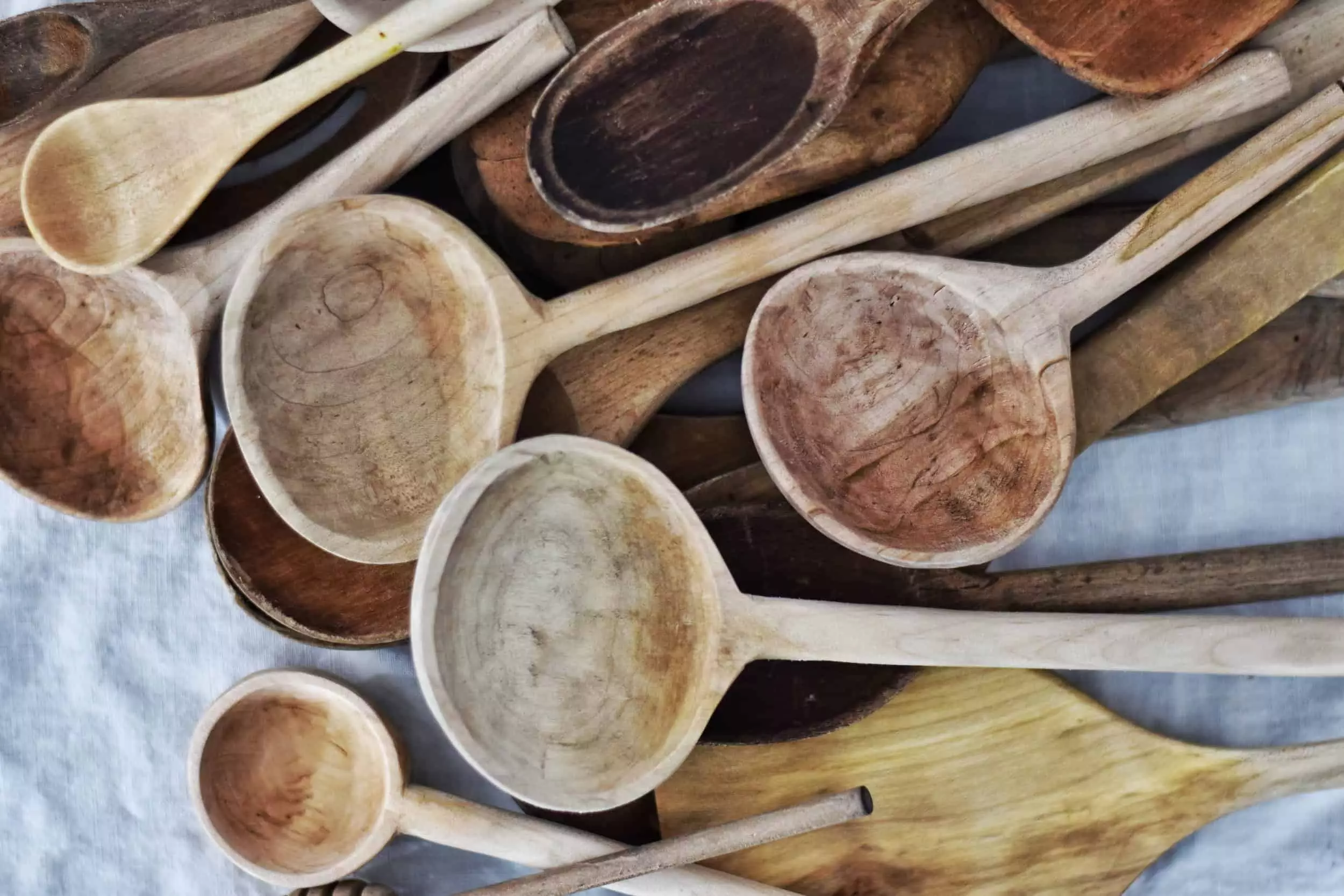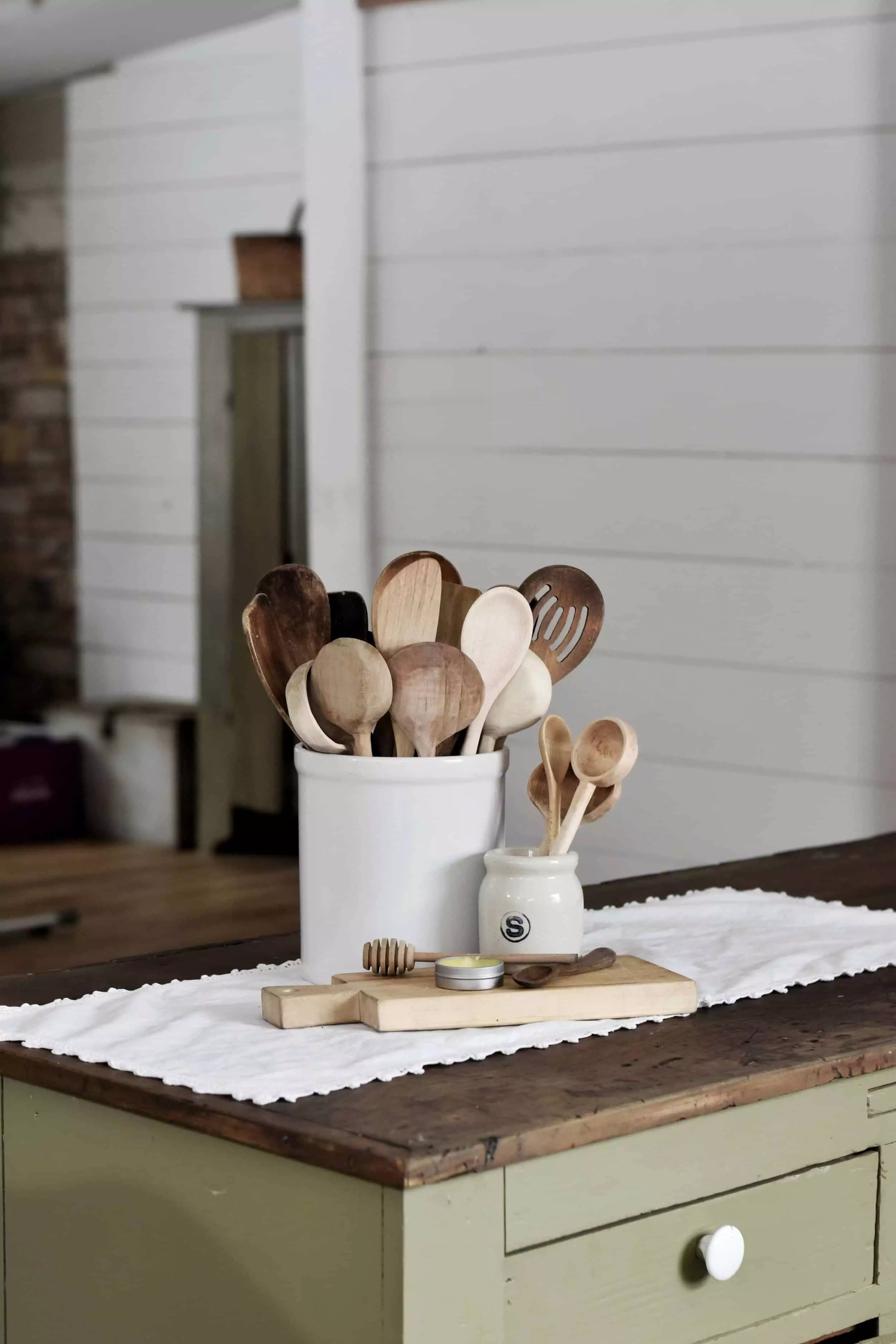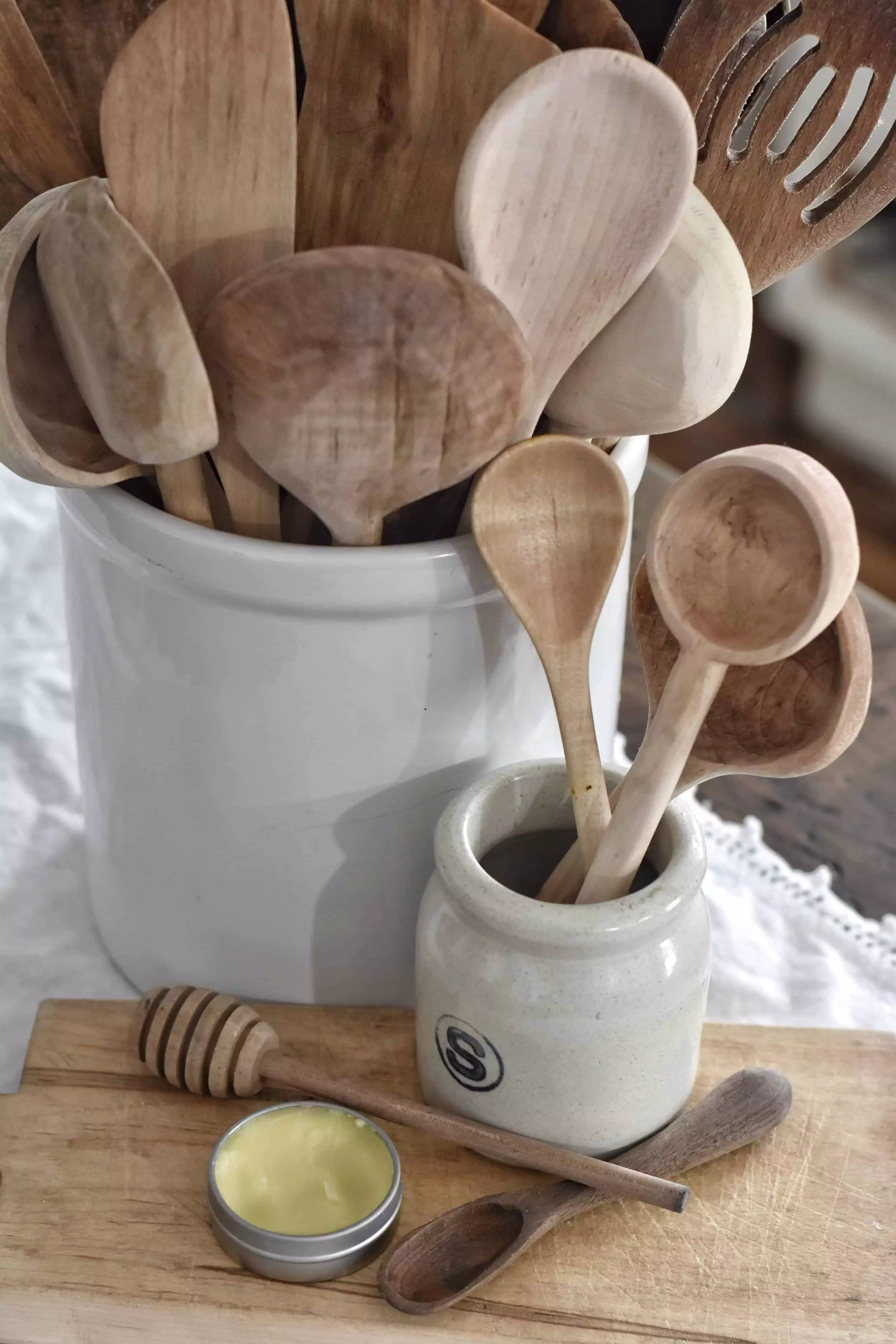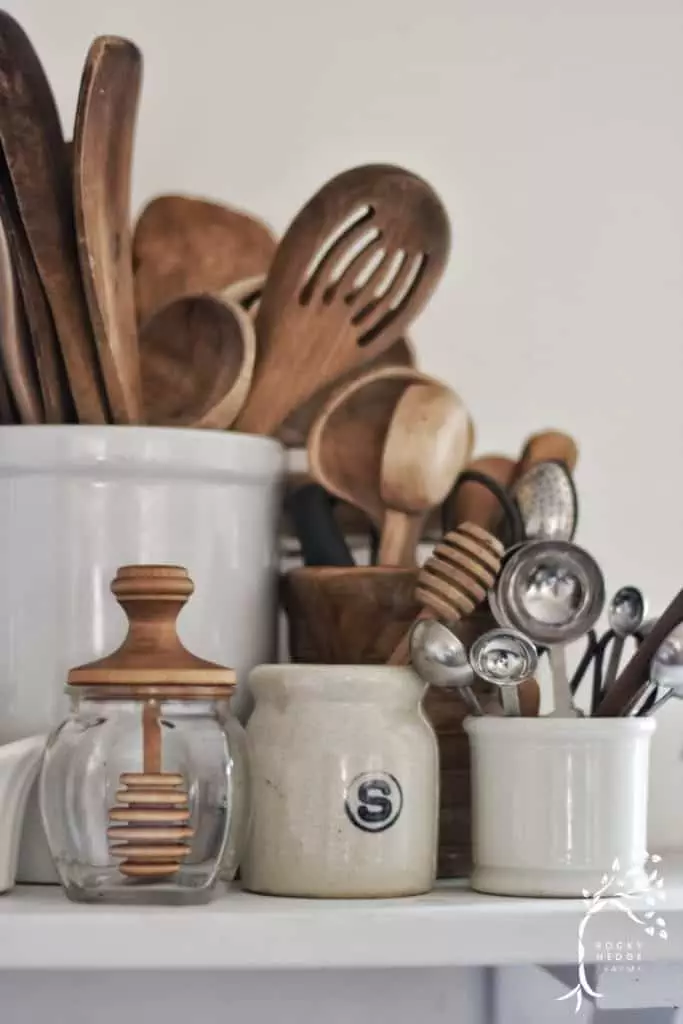How to Clean Wooden Spoons: The Easy Way to Lasting Beauty
Wooden spoons are gentle on cookware and, with proper care, can become cherished heirlooms passed down for generations. But just like any well-loved kitchen essential, wooden spoons require a little TLC to maintain their beauty and functionality.

Caring for Wooden Spoons
Wood is a porous material, meaning it has tiny holes that can trap food residue, bacteria, and moisture. Improper cleaning and drying can lead to:
- Warped Spoons: Excessive moisture can cause the wood to warp, making your once-perfect spoon unusable.
- Cracks and Splinters: Without proper care, the wood can dry out and become brittle, leading to cracks and splinters. These can pose a safety hazard and harbor bacteria.
- Stains and Odors: Food residue left behind can stain your spoons and create unpleasant odors.
- Loss of Luster: Over time, uncared-for wooden utensils can lose their natural shine and beauty.
By implementing a simple yet effective cleaning routine, you can prevent these issues and ensure your wooden spoons remain beautiful, functional, and safe for years to come.

How to Clean Wooden Spoons
The key to cleaning wooden spoons lies in gentle hand-washing. Here’s the process to follow after every use:
- Scrape Off Excess Food: Before washing, use a dull knife or a spoon with a smooth edge to gently scrape off any large food particles clinging to the wood.
- Warm Water and Mild Soap: Fill a bowl with warm water and add a small amount of mild dish soap. Avoid harsh detergents that can strip away the wood’s natural oils.
- Wash Gently: Submerge the wooden spoons in soapy water and use a soft sponge or dishcloth to clean all surfaces, including the handle and any crevices. Avoid excessive scrubbing, which can damage the wood.
- Rinse Thoroughly: Run clean, warm water over the spoons to remove all soap residue. Leftover soap can leave a film and attract dirt.
- Dry Completely: Don’t soak your wooden spoons or leave them drying in a dish rack where water can pool. Instead, pat them dry with a clean dish towel and lay them flat on a drying rack or clean kitchen counter to dry completely.
Pro Tip: For stubborn food residues, you can create a paste using a little baking soda and water. Apply the paste with a soft cloth, scrub gently, and rinse thoroughly.

Even with regular cleaning, wooden spoons can lose their natural oils over time. To keep them looking beautiful and feeling smooth, consider giving them a nourishing treatment with a DIY “spoon butter.” This simple recipe helps to:
- Moisturize: Replenishes the wood’s natural oils, preventing drying and cracking.
- Protect: Creates a barrier against moisture and food stains, making cleaning easier.
- Restore Shine: Revitalize the wood’s natural luster for lasting beauty.
For the full recipe and step-by-step instructions on creating your own spoon butter, head over to our dedicated post: How to Make Spoon Butter for Beautiful and Functional Wooden Utensils

By following these simple yet effective cleaning and care routines, you can ensure your wooden spoons become cherished companions in the kitchen, ready to be passed down for generations.
Embrace the timeless elegance and warmth of wooden spoons, and give them the TLC they deserve!






What a great idea Sarah! I make and use beeswax and olive oil base products all the time. A little vitamin E works well as a natural perservative….but your right using it within three months you should be just fine. Love your posts. Thanks for sharing!
Thank you so much for the great tip! I am still learning ways to preserve the items I make so I appreciate that.
Will you share some stores where you’ve bought your wooden utensils? Aside from thrift shops, any place you can often find them? Thanks! Beautiful pictures, as always!
Yes, I will share. I follow two great families on Instagram that sell wooden utensils. One of them is PoldersOwn and the other one is WeAreCaribou. I try to purchase from small shops and families.
Can you use that spoon butter on wooden cutting boards?
Yes, you can! I went back and added that to the blog. Thank you for reminding me about the cutting boards.
Is it possible to use coconut oil instead of olive oil? Just curious. Thanks!
Awesome writing!
You are completely right, Blot freshly washed wooden utensils with a clean dishtowel, then allow them to air-dry completely before putting them away.
Insightful post indeed!
You are completely right, Putting your wooden utensils in the dishwasher is one of the biggest mistakes that you can possibly make. They’re not meant to soak in extremely hot water for such a long wash cycle.
I have a vintage wooden high chair and I’m looking to clean it and polish it up as naturally as possible. Do you think your method for cleaning wooden spoons would work on a wooden high chair?